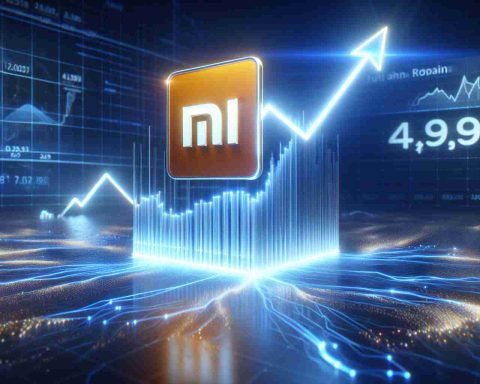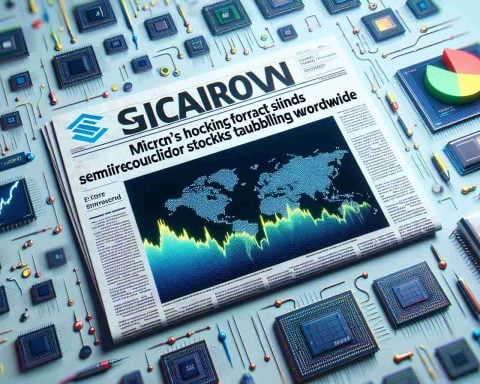In a stunning turn of events, tech giants Nvidia and AMD have witnessed a notable drop in their share prices following startling news from the United States administration. Nvidia’s stock plummeted by over 4%, settling at $134.4, while AMD experienced an even steeper decline of almost 6%, falling to $114.6. These figures represent the lowest points for the companies since November 2023.
Market Jitters Triggered by Export Control Plans
The trigger for this downturn is the revelation of plans from the U.S. government to introduce stringent global export restrictions on AI chips. These measures are purportedly aimed at curbing the flow of cutting-edge technology to nations such as China and Russia. While intended to protect national security and maintain strategic advantages, the proposed restrictions have sparked significant concern among investors in the tech sector.
Analyst Reactions and Market Adjustments
In light of the emerging news, financial heavyweights are adjusting their market strategies. Goldman Sachs has reassessed its stance on AMD, shifting the company’s rating from “buy” to “neutral.” The recalibration includes setting a new target price at $129, reflecting the uncertain future landscape resulting from these policy changes.
The developments underscore the growing geopolitical tensions impacting global technology markets and the chain reaction of investor sentiment shifting in response. As the situation evolves, stakeholders around the world are keenly observing how these proposed export restrictions will unfold and affect the technological and financial sectors.
Impact of U.S. Export Controls on AI Chip Markets: What You Need to Know
Overview of the Situation
The recent U.S. government proposal for tighter global export restrictions on AI chips has sent shockwaves through the tech industry, leading to significant stock declines for major players like Nvidia and AMD. These measures are designed to limit the distribution of advanced technology to specific countries, notably China and Russia, to safeguard national interests. However, the announcement has also introduced considerable market volatility.
Market Analysis: A Closer Look at Nvidia and AMD
The impact of the proposed export controls has been most immediately felt in the stock market. Nvidia’s shares fell by over 4%, while AMD’s shares dropped nearly 6%. These declines are noteworthy, marking their lowest values since November 2023, and reflect investor concerns about future sales and revenue growth in affected markets.
Both companies have substantial interests and market shares tied to global transactions involving AI and graphics processing units (GPUs). This new regulatory landscape could hinder their ability to operate freely in significant international markets.
Strategic Adjustments and Financial Ratings
In response, major financial firms have adjusted their outlook on these tech firms. Notably, Goldman Sachs revised its rating on AMD from “buy” to “neutral,” lowering its target price to $129. This reflects the uncertainty that firms face in anticipation of the implementation and enforcement of these new regulations.
Pros and Cons of the Proposed Measures
Pros:
– Potential enhancement of national security by controlling the distribution of advanced technology.
– Protection of strategic innovations and intellectual property from geopolitical rivals.
Cons:
– Increased production and operational costs for companies forced to reroute or limit distribution.
– Potential loss of revenue from restricted international markets, notably economically significant ones like China.
Long-term Implications and Predictions
This development is emblematic of broader geopolitical dynamics affecting tech markets worldwide. As countries become more cautious about where their technological advancements are used, companies will need to navigate increasingly complex regulations.
Analysts predict a period of adjustment where firms might reevaluate their international strategies, shifting focus to markets with fewer regulatory hurdles or investing in lobbying efforts to modify proposed restrictions. Additionally, competitors unaffected by these restrictions could gain market share, creating shifts in the global tech landscape.
For more information on Nvidia and AMD, visit their official websites: Nvidia and AMD. These sources provide updates and insights directly from the companies themselves.


















